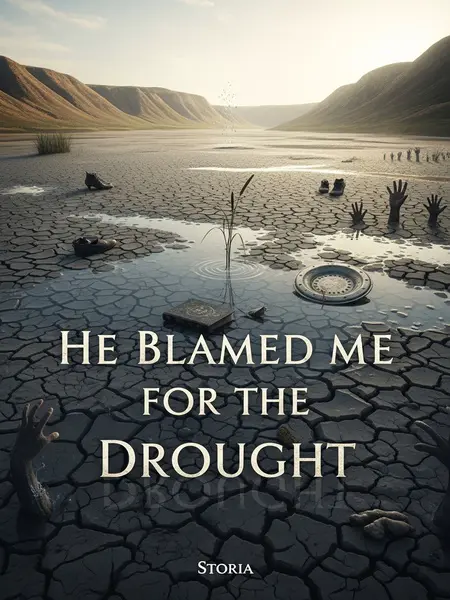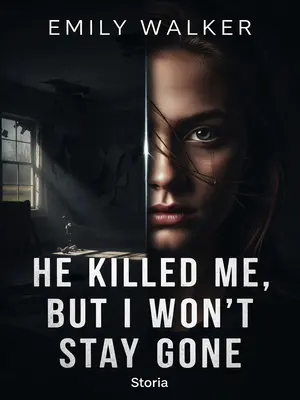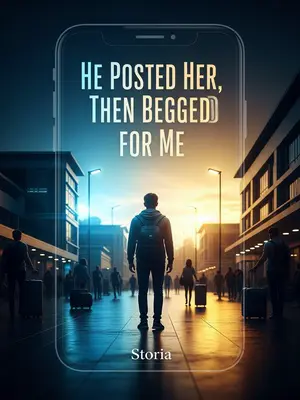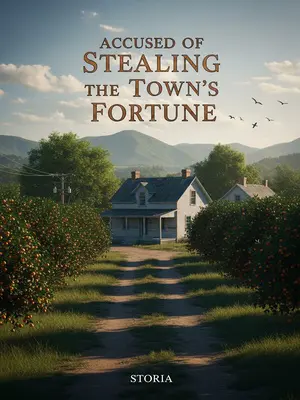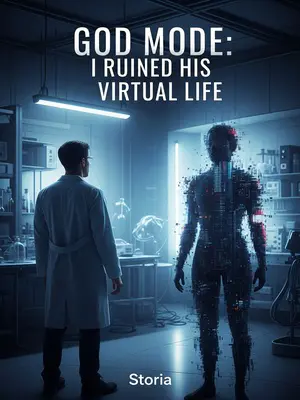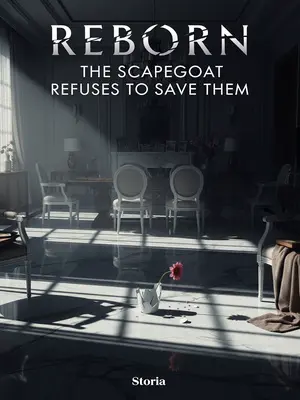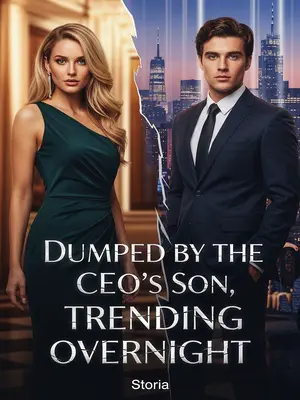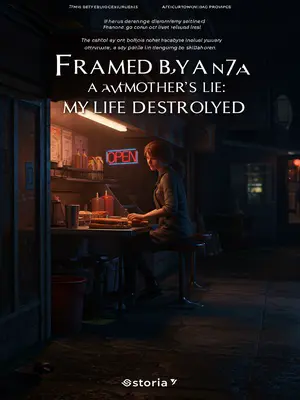Chapter 1: The Spirit on Trial
I’ve always been a coward, even as a rain spirit. That’s just the truth I carry inside, quiet as a secret I can’t shake.
I’ve never been brave, not even close. I’m not the kind of spirit who stands tall or makes a scene. I’m the sort who jumps at every loud noise, who spends most days wishing I could just dissolve into mist and float away. Even now, after all I’ve seen—after the drought, the prayers, the desperate faces—I still feel that way. Especially when folks come hunting for me, their eyes hollow with hope, clutching empty buckets in their hands.
This whole region—our county—has suffered three years of drought, and I’ve been hiding from people day and night, trying to stay out of sight.
Everywhere I went, the land was cracked and dry, the air thick with dust and hope. I’d slip through the reeds and willow roots, ducking away from both prayers and curses. Sometimes, I’d catch the faint voices of children, rough and raspy with thirst, and I’d ache to help—but I never could. Not really. Fear kept me pinned down, invisible, useless.
I should have known better. Yet, they still found me.
It was bound to happen, I guess. People have a way of chasing after hope, even when it’s thin as smoke, you know? I’d hidden in every nook of the river, but someone always caught a glimpse—a shimmer, a shadow, a ripple out of place. Soon they started leaving offerings, chanting old words, and finally, they found me—dragged out into the light like a raccoon caught in a trash can.
When it happened...
The town president—our mayor, really—hurled an axe into the cracked riverbed.
The moment that axe hit, it rang out with a dull, metallic echo across the dry valley. The crowd watched, breathless, as if the river might just spring to life right then. I felt myself pulled up, like a fish on a line—I couldn’t resist. For a split second, I hesitated, and then my form flickered into view, shimmering above the dusty stones.
My body appeared against my will, and I blurted out the words I always had to say, even though I hated them:
“Did you drop this gold axe, or this silver axe, or—or, oh, could you please put down your weapons first?”
My voice wobbled, echoing off the stunned crowd. I saw hands gripping axes, pitchforks, even a couple old hunting rifles. Sweat beaded on foreheads. The air buzzed with expectation and something sharper—maybe anger, maybe fear. My nerves jumped like live wires.
“I swear, I don’t have a single drop left.”
I tried to sound firm, but my words came out small, almost pleading. The truth was, I felt as empty as the riverbed itself. Every eye on me was hungry, accusing, desperate. I wished I could vanish right then and there.
Out in the fields beyond Maple Heights, the supernatural was fighting in chaos.
It wasn’t just people struggling. Old stories came alive in the dust—strange shadows flickered, winds howled with voices nobody really recognized. Sometimes, at night, you’d see blue lights drifting over the fields, or hear laughter where there shouldn’t be any. It was chaos. Nobody really won.
The battle lasted three days, and the human world suffered drought for three years. Three days of storm and fury, then nothing but silence. After that, the rain just stopped. The rivers shrank, the wells dried up, and even the sky seemed to forget how to cry. Folks started saying the world was cursed.
The President sent folks searching for rain rituals. That’s how they found me—the unlucky rain spirit.
I never wanted to be found. But when the President’s men came, they brought old books, strange relics, and a kind of determination that made my skin crawl. They dug through every myth, every half-remembered prayer, until finally my name surfaced like a drowned leaf.
On the banks of the Redwater River, a preacher in a black suit laid out food as offerings and tossed beef, ham, and pork into the river.
He was an old-timer, face wrinkled like a dried apple, hands shaking as he worked. The food was the best anyone could spare—thick slices of ham, roast beef, even pork ribs glazed with honey. You could smell it all the way down the riverbank. The scent drifted over the parched ground, making my mouth water even though I wasn’t supposed to eat.
I didn’t dare accept them.
No way. Taking those offerings felt like making a promise I couldn’t keep. My stomach twisted with guilt, but I stayed hidden, watching the feast sink into the muddy water. Even the fish, if there were any left, just ignored it.
Those three offerings floated back, untouched, to the riverbank. The old preacher’s face went pale, and his hands shook.
It was a miracle, I guess. The beef, ham, and pork all floated back, untouched, like the river itself had spat them out. The preacher’s eyes went wide, and he stumbled backward, muttering prayers under his breath—shaken, rattled to the core. Some folks crossed themselves; others just stared, jaws tight.
He brought the most precious homemade cornbread, fresh-baked cider, and apples of the season.
He must’ve scraped together every last bit from his pantry. The cornbread was golden, the cider sweet, the apples shiny and red. He laid them out, hands shaking, hoping this time would be different.
The next day, I returned them as usual.
I couldn’t take what I couldn’t repay. The gifts reappeared on the shore, untouched, but the scent was even sweeter than before—like the river had polished them clean. The preacher’s shoulders slumped. I felt the weight of disappointment pressing down on the whole riverbank.
I didn’t eat the feast. Didn’t accept the gifts. I kept my hands clean and didn’t let a single drop leak out. It was honest, sure. But it was lonely, too.
But I was empty, and so was the sky.
In the end, almost trembling with fear, he offered a pair of tightly bound, crying children.
Their cries cut through the hot afternoon—sharp, raw, desperate. The old preacher’s hands shook as he led them to the water’s edge. The crowd watched, silent and horrified, but nobody stepped in to stop it. Desperation does strange things to people.
He shouted, “This boy and girl, please, Lord Rain Spirit, accept them, protect the people, and send down sweet rain!”
His voice broke on the last word—a plea and a command, all at once. The children sobbed, looking around for someone—anyone—to help them. Something inside me twisted, a feeling I couldn’t name.
Back then, the Redwater River still had a little water left.
There was still a thin trickle, just enough to wet your feet. The mud was cool and slick, and the children’s toes dug in as they fought against the ropes, struggling not to slip.
Seeing those little kids sinking into the water and choking, I sent a wave to push them back onto the shore.
It wasn’t much. Just a gentle swell. But it was enough. The children tumbled onto the bank, coughing, sputtering, eyes wide with terror. The crowd gasped, not sure if they should be relieved or afraid.
The old man dropped to his knees. “Lord, please accept!”
His voice was hoarse. Desperate. He pressed his forehead to the mud, hands clenched tight in prayer. I saw it in his eyes—hope, stubborn as ever.
The water rippled, a clear no. I don’t like hurting children.
Just a gentle, firm no. I wanted them to understand. I wouldn’t take what wasn’t freely given. And I’d never take a child.
“Lord…”
His voice cracked. The whole crowd seemed to hold its breath. I felt their disappointment settle over me, heavy as a storm that never breaks.
I don’t want them. I never did.
I whispered it into the current, hoping someone—anyone—would hear. For a second, I wished I could just disappear.
After three rounds of this—offer, refusal, offer again—I got a little angry.
Even patience runs out. On the third try, something inside me snapped. I was tired of being tested, tired of being misunderstood.
A wave slapped the preacher across the face, sending his beard flying.
It wasn’t hard—just enough to make a point. His beard stuck out in wild directions, and the crowd gasped. Some folks laughed nervously. Others shrank back, scared the spirit’s anger might land on them next.
He finally got it. He left with his group, looking back every few steps.
The children clung to their mother, sobbing. The preacher gathered his things, glancing over his shoulder, half-expecting another slap. The crowd drifted away, still uneasy, still unsatisfied.
I let myself sink to the bottom of the river. Listless.
The water was cool and dark—a welcome escape from the heat and noise above. I let myself drift, wishing I could just disappear for good. I felt like a ghost in my own home.
